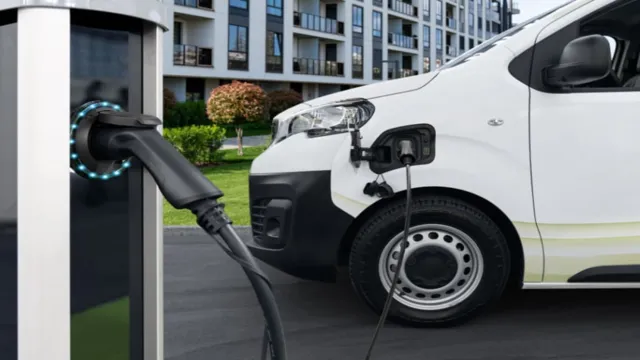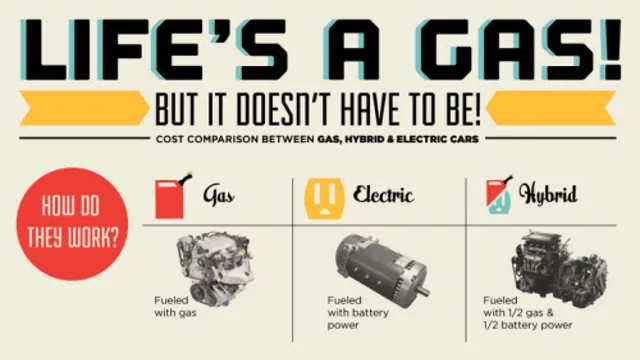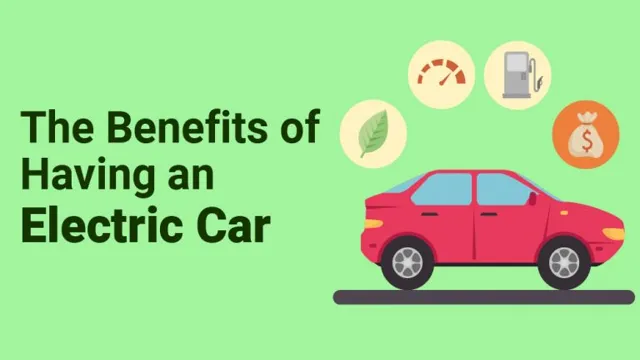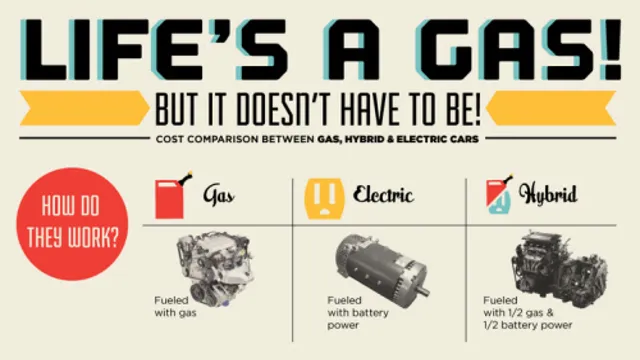Unlocking the Benefits of Electric Cars: Understanding HMRC’s Benefit in Kind Policy
If you’re considering buying an electric car, you may be wondering about the cost benefits. One area to consider is the Benefit in Kind (BIK) tax, which applies to employees who use a company car for private use. The good news is that if you choose an electric car, you may be eligible for a reduced BIK rate, making it a more affordable option.
So, what is the HMRC Benefit in Kind for electric cars, and how can it save you money? Let’s dive in and find out.
Introduction
If you’re considering buying an electric car for personal or business use, it’s important to understand the HMRC’s benefit in kind system. Essentially, this system assesses the value of any ‘perk’ or additional benefit that you receive because of your job, including the use of a company car or any fuel or electricity used to power that car. Previously, the benefit in kind rate for electric cars was set at 16% of their list price, but this has since been reduced to 0% in an effort to encourage drivers to make the switch to electric and hybrid cars.
This means that if you’re given an electric company car, you won’t have to pay anything in extra tax – a huge incentive for both individuals and businesses. However, it’s worth noting that this reduction in benefit in kind rates only applies until 2025, after which it’s expected to increase again.
What is HMRC Benefit in Kind?
HMRC Benefit in Kind Welcome to the world of HMRC benefits in kind – a concept that can be confusing for many people. Essentially, a Benefit in Kind (BIK) is a non-cash benefit that an employer provides to an employee alongside their salary. However, it is important to remember that these benefits are still taxed by the government, meaning that both employees and employers must be aware of their obligations when it comes to BIKs.
In this blog post, we will explore the intricacies of HMRC Benefit in Kind, how it works, and what you need to do to stay compliant with the regulations. So, let’s dive in!
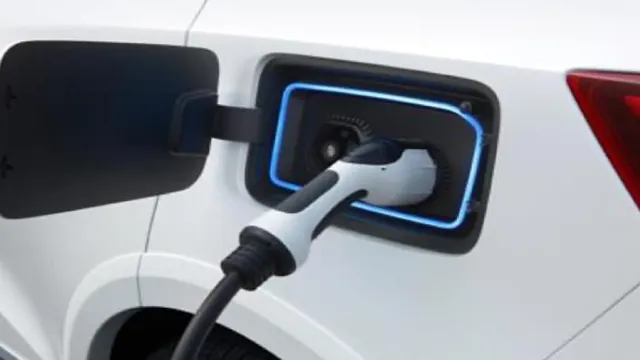
Why Choose Electric Cars?
Electric Cars Electric cars are becoming an increasingly popular choice for drivers who are looking for a more sustainable option for their transportation needs. The benefits of electric cars are numerous. First and foremost, they are better for the environment than traditional gasoline-powered cars.
Electric cars produce zero emissions, meaning they don’t contribute to air pollution or the greenhouse gases that cause climate change. Additionally, electric cars are quieter and smoother to drive, providing a more enjoyable ride for drivers. They also require less maintenance than traditional cars since they have fewer moving parts, meaning less wear and tear and fewer trips to the mechanic.
With advances in technology, electric cars are also becoming more affordable and have longer ranges than ever before. So if you’re looking for a cleaner, more efficient way of getting around, an electric car might just be the perfect choice for you.
Electric Cars and Tax Benefits
One of the benefits of owning an electric car is reducing your carbon footprint. But did you know that you can also benefit financially from driving an electric car? The UK government provides tax incentives to encourage drivers to switch to zero-emission vehicles. A particularly attractive incentive is the HMRC Benefit in Kind scheme.
This scheme allows electric car owners to enjoy significantly lower tax bills on their company cars. The rates for electric cars are lower than those for petrol or diesel cars, and they will stay low until at least 202 This means that not only are electric cars better for the environment, but they are also more cost-effective in the long run.
By choosing to purchase an electric car, you can reduce your tax bill while contributing to a cleaner and greener future.
Low Company Car Tax Rates
Electric cars are becoming increasingly popular due to their many benefits, including lower company car tax rates. The UK Government has introduced tax incentives to encourage businesses to switch to electric vehicles (EVs), making them more affordable and attractive. For instance, EVs emit fewer carbon emissions, which qualifies them for a low or a zero tax rate.
Furthermore, EVs have lower running costs compared to petrol and diesel cars, making them a more cost-effective option for businesses. The tax incentives also extend to home chargers and grants for purchasing new electric cars. By switching to an electric vehicle, companies can save money and do their part in preserving the environment.
Zero Benefit in Kind Tax Rates for Electric Cars
Electric cars are becoming increasingly popular due to their environmental and cost-saving benefits. Companies and private individuals are investing in these vehicles, and governments around the world are offering incentives to promote their use. The UK government has introduced “zero Benefit in Kind tax rates” for electric cars which has made them more attractive to individuals and businesses alike.
This means that electric car owners pay no tax on the non-cash benefits given to employees, making the cars more affordable and cost-effective to run. This tax benefit is a major factor that has increased the demand for electric vehicles in the UK. With low emission requirements, tax incentives and grants for drivers, and a growing network of charging infrastructure across the country, there’s never been a better time to consider making the switch to an electric car.
Plug-in Car Grant
The Plug-in Car Grant has been in place in the UK since 2011 to promote the adoption of electric vehicles. This government scheme offers up to £2,500 towards the cost of a new electric car. With the increasing popularity of electric vehicles, many drivers are looking into the financial benefits of making the switch from petrol or diesel to an electric car.
One of the most significant advantages of owning an electric car is the tax benefits, particularly the exemption from Vehicle Excise Duty (VED) and reduced Company Car Tax rates. Not only can electric car owners enjoy reduced running costs due to lower electricity prices than petrol or diesel, but they can also take advantage of the tax incentives that come with owning an eco-friendly car. By reducing their carbon footprint, electric car owners can also do their part in helping the environment.
Cost Saving Benefits
One of the many benefits of going electric with your vehicle is the cost savings associated with them, including a major benefit from HMRC in the form of Benefit in Kind (BIK) tax. Electric cars have a low BIK rate compared to traditional petrol or diesel cars, which can save businesses and individuals alike a significant amount of money. Additionally, electric cars have much lower running costs, as they require less maintenance and have cheaper fuel costs.
Beyond just the financial benefits, electric cars also have a positive impact on the environment, making the switch to one a smart and sustainable choice. With the potential savings on taxes and running costs, as well as their positive impact on the planet, it’s easy to see why electric cars are becoming an increasingly popular choice.
Fuel Savings
Fuel savings are a great way to reduce expenditures in any business or household that uses vehicles as a means of transportation. By implementing a few simple changes, such as reducing speed, accelerating gently, and avoiding unnecessary idling, drivers can save a significant amount of money on fuel costs. In addition to reducing fuel consumption, other cost savings benefits include reduced wear and tear on the engine and a potential reduction in the frequency of oil changes.
Implementing these fuel-saving habits can also have a positive impact on the environment by reducing greenhouse gas emissions and improving air quality. By taking steps to improve fuel efficiency, not only is money saved, but a healthier and more sustainable future can be created for all.
Reduced Maintenance Costs
Reduced maintenance costs are one of the biggest benefits of using modern technology in any industry. With the latest advancements, businesses can ensure lower repairs and maintenance costs, reduce downtime, and save money in the long run. By implementing predictive maintenance strategies, companies can easily identify potential issues before they turn into major repairs.
They can also schedule maintenance tasks according to equipment usage, making the process more efficient and cost-effective. Moreover, modern machinery comes with self-diagnostic systems that can detect and report issues in real-time, allowing maintenance staff to act quickly and prevent costly downtime. By embracing advanced technology, businesses of all sizes can benefit from reduced maintenance costs while improving overall efficiency and productivity.
Environmental Benefits
One of the major environmental benefits of using electric cars as Benefit in Kind (BIK) is a significant reduction in carbon emissions. The HMRC Benefit in Kind scheme for electric cars encourages people to make the switch to these vehicles, and they are a viable way of reducing our carbon footprint. Unlike conventional petrol or diesel cars, electric vehicles have zero emissions, which means they do not emit harmful pollutants into the environment, making them a sustainable solution.
The BIK scheme helps promote electric cars by providing tax incentives to businesses. As a result, more businesses are taking this eco-friendly path, which could have a significant impact on the environment. Additionally, electric car technology is rapidly advancing, providing increasingly efficient and cost-effective alternatives for the more traditional petrol and diesel vehicles.
With growing pressure on reducing our carbon footprint, the HMRC benefit in kind for electric cars is an essential initiative for promoting a greener future.
Reduced CO2 Emissions
Reduced CO2 emissions have brought about significant environmental benefits, such as mitigating the effects of climate change and improving air quality. The burning of fossil fuels, such as coal and oil, in various human activities such as transportation, energy production, and industrial processes, results in the release of a significant amount of greenhouse gases, including CO2, into the atmosphere. However, through the adoption of renewable energy sources and the promotion of energy efficiency, we have been able to significantly reduce CO2 emissions.
This leads to a decrease in the concentration of greenhouse gases in the atmosphere, which helps prevent the warming of the planet. Additionally, this significant reduction in CO2 emissions contributes to better air quality as a result of fewer pollutants being released into the atmosphere. As a result, reduced CO2 emissions demonstrate our potential to protect and preserve our environment for our future generations.
Improved Air Quality
Improved Air Quality Improved air quality is one of the most significant environmental benefits of reducing carbon emissions. We all know that air pollution can lead to severe health problems like asthma, heart disease, and lung cancer. However, by reducing carbon emissions, we can significantly reduce the amount of harmful pollutants that enter our atmosphere.
This reduction in air pollution not only benefits our health but also the health of the planet. Improved air quality means that we can enjoy cleaner air and experience fewer smoggy days. It also means that the ecosystem can thrive, as clean air leads to healthier plants and wildlife.
By reducing carbon emissions, we can take a big step towards creating a cleaner, healthier planet for ourselves and future generations. So, let’s make a conscious effort to reduce our carbon footprint and enjoy the benefits of improved air quality.
Conclusion
To wrap it up, the HMRC’s benefit in kind policy for electric cars is a shockingly good deal for both employers and employees. By owning and driving electric cars, not only are you saving the planet, but you’re also saving money on tax. With zero emissions and tax, and plenty of innovative technology, electric cars are the ultimate power move.
Now, let’s all drive towards a greener future!”
FAQs
What is a benefit in kind in relation to an electric car provided by an employer through HMRC?
A benefit in kind is a non-cash perk that an employee receives from their employer. In the context of electric cars, a benefit in kind is the amount an employee is required to pay as income tax on the value of the car provided to them by their employer through HMRC.
How is the benefit in kind value calculated for an electric car?
The benefit in kind value of an electric car is calculated by multiplying the list price of the vehicle by its percentage charge emissions rate. The resulting figure is then multiplied by the employee’s income tax rate to determine the amount of tax they must pay.
Are there any exemptions or discounts available for benefit in kind tax on electric cars?
Yes, there are a few exemptions and discounts available for benefit in kind tax on electric cars. For example, the benefit in kind value is zero for electric cars with zero emissions, while those with emissions of up to 50g/km are eligible for a reduced rate.
Can an employee choose to opt out of a company-provided electric car to avoid benefit in kind tax?
Yes, an employee can choose to opt out of a company-provided electric car if they do not wish to pay benefit in kind tax. However, they will then be responsible for purchasing and maintaining their own vehicle.


